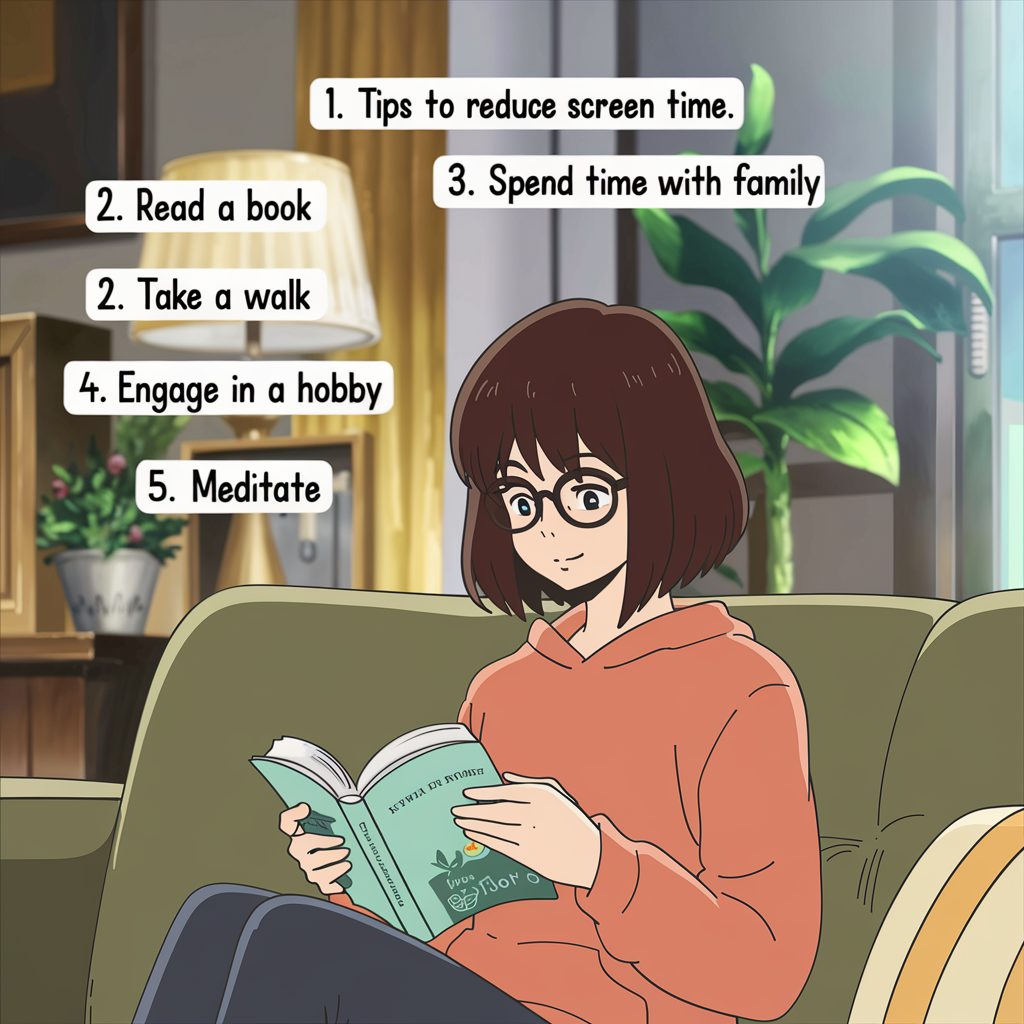 Home »
Home » 
Digital Detox: How Do Ad Blockers Help to Reduce Screen Time?
Screen time refers to activities performed in front of a screen, such as watching TV, working on a computer, or scrolling your cell phone. But what are the consequences of spending too much time in front of a screen? Are there any strategies that can help us reduce screen time? In this blog, you will find tips to reduce screen time and discover why using an ad blocker is brilliant for accomplishing this.
How many hours of screen time is healthy?
If you were wondering about healthy screen time for adults, experts say that adults should limit screen time outside of work to less than two hours a day, considering that we usually spend more than eight hours a day in front of the computer for work purposes. Limit screen time outside of work to achieve a healthy balance. Adults should try to limit total screen time to eight hours a day for work plus two to four hours for entertainment.
What are the effects of too much screen time?
Today, we face information overload and sensory overstimulation due to prolonged screen time. And as expected, this has brought severe consequences to our health beyond being distracted and annoyed online. Discover the adverse effects on physical and mental or psychological health related to excessive screen time.
Negative effects of too much screen time
- Negative Impact on Sleep: Our bodies need darkness to get a deep sleep. However, exposure to screens for an extended period before bedtime exposes us to blue light, increasing the risk of damage and affecting the production of melatonin, the sleep hormone.
- Impaired Cognitive Development: Excessive screen use may negatively impact cognitive development, especially in children. Clinical studies have observed decreased problem-solving ability, increased inattention, and decreased analytical thinking in children.
- Higher Risk of Vision Problems: Eye strain is another disadvantage of spending long periods exposed to screens. Eye fatigue is expected when the eyes become tired due to intense screen use.
- Posture Problems: Did you know proper posture can be affected by spending too long in front of screens such as computers? Neck pain, back pain, and repetitive strain injuries are problems attributed to these issues.
- Sedentary Lifestyle: Sitting in front of screens for a longer time generally leads to a lack of physical activity, which negatively affects cardiovascular health, increases the risk of obesity, and contributes to the development of other chronic diseases, such as diabetes.
But don't panic! Below, you will find the best strategies to reduce your screen time.

How ad blockers cut down on screen time?
Ads, which often consist of flashy videos and graphics, capture our attention and entice us to interact with unnecessary content, prolonging our time on our devices. For this reason, ad blockers can indeed contribute to reducing screen time by eliminating distractions and enhancing user focus.
Here's an expanded explanation with some solid research-backed points showing how adblockers help you cut screen time:
1. Reduced distractions
Ad blockers remove ads, pop-ups, and other forms of advertising that often tempt users to click away from their original task, leading to prolonged and unfocused screen time. Research from Mozilla shows that users with ad blockers generally experience fewer distractions and are less likely to engage in random browsing, which can help reduce overall screen time.
2. Improved focus
Studies indicate that interruptions like those caused by digital ads can negatively impact cognitive focus and performance. By blocking ads, users maintain their concentration better, which leads to a more efficient and focused use of time online. This has been observed in productivity tools that aim to block distractions, suggesting ad blockers provide similar benefits.
3. Better online experience
Limiting screen time has been shown to improve mental health and behavior for children and adolescents. By removing online ads that may overstimulate or expose them to inappropriate content, ad blockers can help provide a safer online environment, making screen time more practical and less prone to impulsive or prolonged use.
Therefore, by filtering these ads, ad blockers enable cleaner browsing, greater productivity, reduced sensory overload, and make it easier for users to focus only on relevant content. Do you want to discover one of the most effective ad blockers for reducing screen time?
Reduce screen time with Stands Free AdBlocker
Stands Free Adblocker is an excellent option for blocking ads and distractions while browsing. Stands will also help you personalize your online experience and decide which content to see. Keep reading to discover how to start your digital detox today with Stands:
- Get a faster browsing speed: Stands helps websites load faster without ads. Ads, especially multimedia ads, tend to slow down web browsing and contribute to lengthening your screen time.
- Achieve increased productivity: If you want to be more productive online, you can block unwanted content with Stands and have fewer distractions.
- Put your mind at ease with less mental overload: Fewer ads will reduce your mental fatigue and overstimulation, contributing to better online habits.

How do I drastically reduce screen time?: Extra tips
In addition to using an effective ad blocker that contributes to better browsing, fewer online distractions, and limiting your exposure to unnecessary content, we recommend following these tips to reduce screen time and improve your online habits:
- Conscious Use of Technology: In addition to using ad blockers, we recommend that you find effective extensions and apps to manage your online productivity and limit time spent on devices.
- Establish Parental Controls: Using parental control tools and ad blockers will help children avoid exposure to unnecessary or inappropriate content for their age.
Ready to improve your online habits?
Ad blockers are practical tools that can help you establish better online habits. Reducing screen time, eliminating unnecessary distractions, and limiting prolonged device use are excellent first steps to cultivating healthier online practices and reducing the risk of health issues related to prolonged screen exposure. Effective ad blockers such as Stands Free AdBlocker allow users to avoid constant exposure to visual and video ads and complete their online tasks more efficiently.
However, to fully impact your digital wellness, it is vital to prioritize setting mindful boundaries, such as limiting usage time and avoiding screen overexposure, but mainly engaging in offline activities to improve your emotional and physical well-being.

